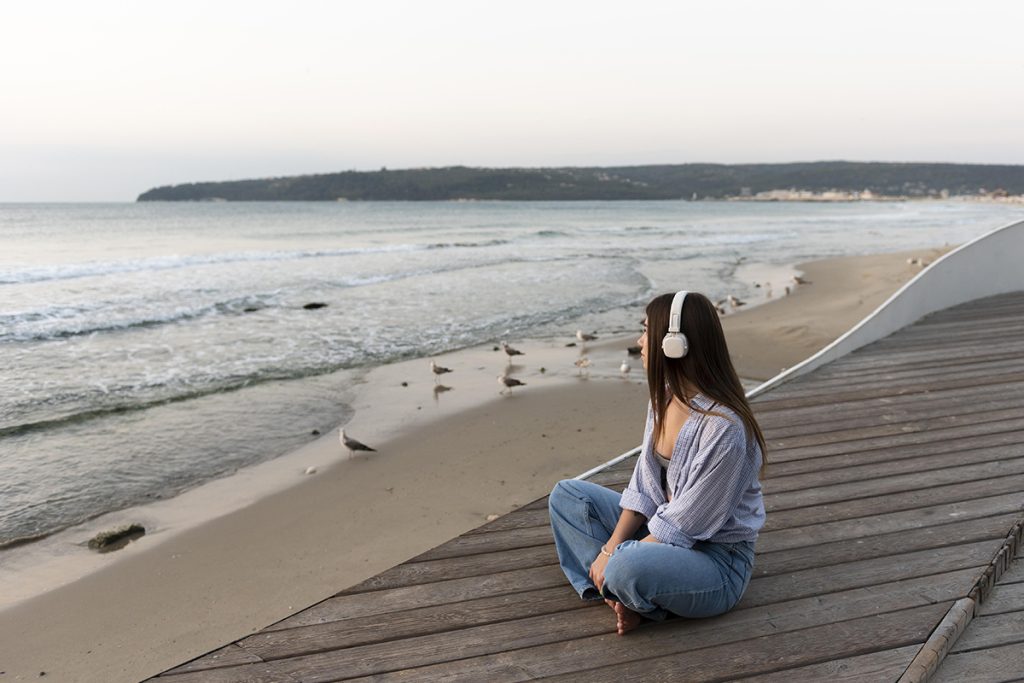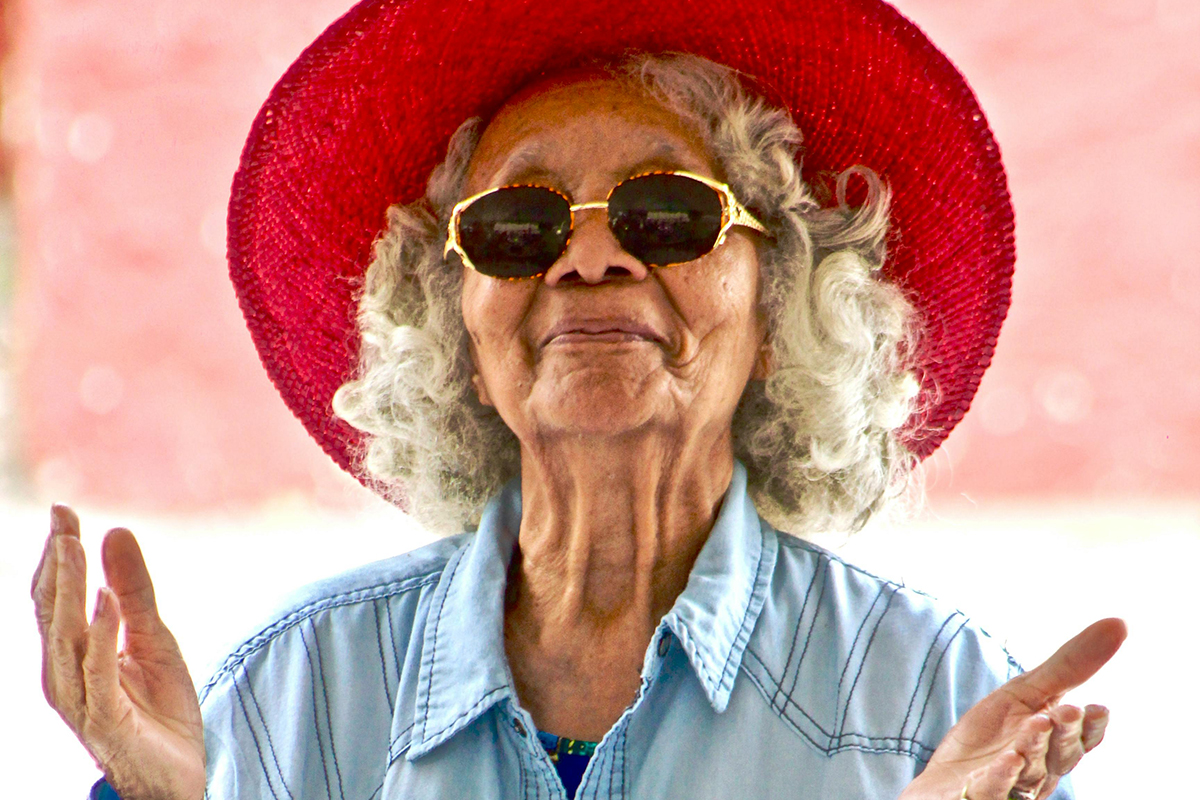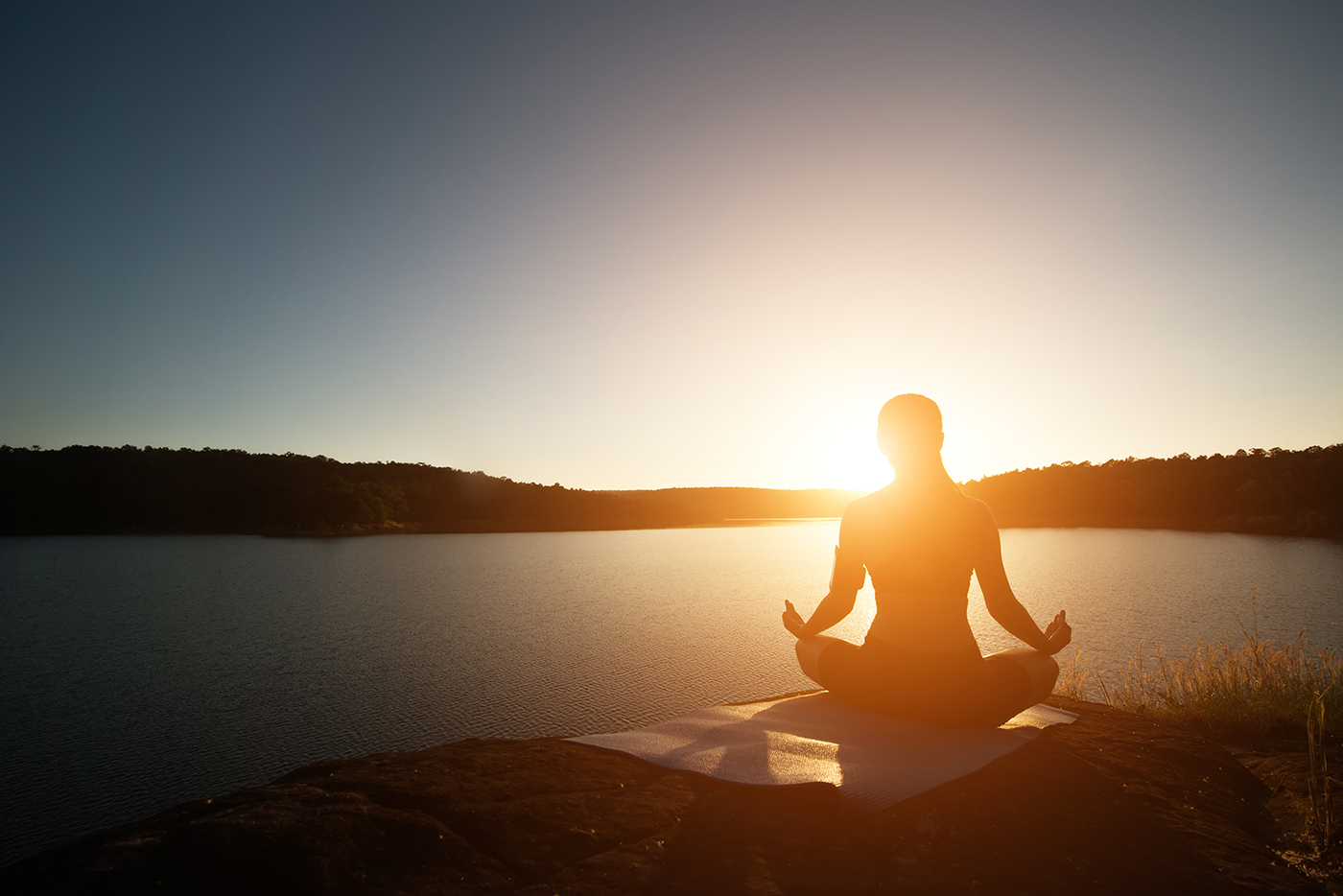12 simple ways to find inner peace

Let’s start the interesting article with defining what inner peace is. Inner peace is what we feel when our body, mind, heart and soul are at rest. Instead of striving to control or resist ourselves and others, we feel a sense of deep acceptance, forgiveness, love, and compassion.
Inner peace is synonymous with being in touch with your true nature or soul. And above all, inner peace can only and always take place in the present moment (since that’s all we really have).

The key to finding inner peace
Simply put, inner peace is the by-product of letting go and surrendering.
So, it’s not about chasing, pursuing and trying to ‘earn’ peace. Since that is not possible. Trying to ‘fight’ for inner peace is contradictory and pointless: it will only deepen our suffering.
Instead, finding inner peace is about giving up our need for control and fighting. Essentially, you could say it’s about giving up, but not in a disempowering way. Rather, it is a form of resignation based on a deeper understanding that life orchestrates everything we experience perfectly for our growth and expansion. Therefore, why is there a need to constantly work against everything?
But doesn’t that mean you’re going to become a braggart or a doormat for people to take advantage of? Surely not! Living from a place of letting go and surrendering is not about letting yourself be used or abused.
We still need to practice self-care, self-respect, and self-love. This can mean setting personal boundaries, saying no, and removing ourselves from harmful situations. But it also means giving up our resentment, guilt, and hatred toward others. Do you see the difference? Life is all about balance.
A simple exercise to get an idea of what inner peace is
Let’s try a simple exercise that will help you viscerally understand what inner peace is:
Sit somewhere quiet. Then tighten your whole body. Imagine being squeezed into a tight ball. Hold that thought and position for 30 seconds. Get as contracted as possible. Make yourself super stiff and uncomfortable. Then let go. Do you feel how spacious your body is now? It is the same with inner peace – except that it radiates from within.

12 simple ways to find inner peace
As we now know, inner peace is a movement of opening, surrendering and letting go. But what exactly are we letting go of?
As always, let’s look within ourselves first and see all of the forms of inner conflict we carry with us. This can be a painful and challenging exercise for our ego to deal with, but it is extremely important.
Here are twelve simple ways to find inner peace:
01. Be aware of the treadmill for self-improvement
To avoid turning this article into another ‘X-ways-of-yourself’ article, we would like to point out that the spiritual quest itself can be counterproductive. The desire to constantly improve, repair and heal ourselves can (very quickly!) become like a treadmill that keeps us stuck.
There is nothing wrong with seeking growth and change. But please know that at a core level you are already Whole! Your mind may be fragmented, yes, but your essence is already Whole and Complete. Understanding this can save you a lot of stress and a burnout, so you won’t feel the peace that is already deep within you.
So in this regard, read the rest of this article with a light mind and heart. Everything will happen when it has to happen. The following advice is just pointers and mental places that you can explore and deepen at your own personal level. With no stress and no rush.
So with that in mind, let’s get to the next mental contraction that robs you of your inner peace:

02. Stop expecting life and people should be different
Here’s the reality: you can expect, and expect, and expect, and expect…but what happens at the end of the day? You’ll feel exhausted, resentful, bitter, stressed, and hopeless. What a waste of time, energy and effort!
So much of our unhappiness comes from expectations. And most of the time our expectations are totally unconscious. In other words, we are not aware that we demand so much from other people and life itself.
But why do we make these expectations so important? Expectations don’t change anything at all: they’re like brain farts! Can you change other people? No. And that’s just life. People only change when they want to. Understanding this is the beginning of inner peace.
03. Release results and resentment
Resentment + resentment = self-righteousness… and let’s face it, feeling genuinely resentful is extremely addictive in a toxic way. Because when we obsessively hide past mistakes from others, we are essentially saying to ourselves, “I have a right to perpetuate my own misery”.
But on your deathbed will you really care who is right and who is wrong? Holding onto a grudge is not only infantile, but it’s also ill-spent on focusing on the minutiae of life.
04. Know your emotions (and embrace them)
None of us like to feel uncomfortable emotions, so it’s very common for us to suppress, resist, or avoid them. Unfortunately, this creates an emotional suppression, which blocks inner peace. Here’s the thing: hiding your feelings is not the same as dealing with them.
Just because your feelings temporarily disappear doesn’t mean they’re gone completely. In fact, the longer you’ll suppress them, the bigger they’ll get. And the greater these emotions become, the more you’ll feel an extreme lack of inner peace.

05. Stop getting lost in the past or the future
The reality is that the past and the future do not exist at this present moment; all that exists now is NOW! While this makes sense to most people, most of us don’t take it to heart. By getting lost in the past regrets or future fears, we completely lose touch with the grounded present moment. Inevitably, heartbreak, tension, and overexertion are… the stuff nervous breakdowns are made of!
06. Be aware of your obsessive need to control
All former ‘control freaks’ know how bad it is to be constantly in an exhausted, wired state. If you have the obsessive need to control everything, you will be a master planner trying to predict and force every situation into what you want or think you can handle. This, of course, equates to enormous amounts of stress and anxiety – the antithesis of inner peace.
Inner peace begins the moment you do choose not to let another person or event control your emotions
Pema Chodron
07. Embrace the unpleasant
Wanting to be liked by everyone is such a big problem in our society. In a world where we are taught to get our self worth from external achievements and how popular we are, it is almost inevitable that almost all of us will fall into this trap.
Then we’ll let our fear of what other people think rule our lives. And these perceived thoughts of others will become our prison cell. We have such a poor foundation of inner self-esteem and love that we almost always seek it from sources outside ourselves. When we ignore our authentic selves to be kinder and more accepting, we’ll give away our personal power.

08. Let go of our inner martyr or victim
Taking on the role of a martyr or victim under any circumstance is an act of self-sabotage on an unconscious level. What is a victim? A victim is one who believes that he has no personal power and that he or she is a victim of fate. They are defined by self-pity.
What is a martyr? A martyr is someone who sacrifices him or herself unnecessarily for others and uses this as a form of manipulation. They are defined by self-sacrifice. Both roles maintain chaos and stress – the opposite of inner peace.
09. Forgive yourself (and others too)
Refusing to forgive yourself for past mistakes, messes, perceived failures, mistakes, or shortcomings is often a product of low self-esteem. And if we go to the roots of this low self-esteem, we often do find toxic core beliefs that tell us that we are naturally bad, not good enough, and so on.
Unfortunately, a lack of self-forgiveness means you are more likely to hold on to resentment and bitterness toward others. Because if we don’t know how to forgive ourselves, we don’t know how to forgive others.
10. You do not have to be PERFECT.
Perfectionism promotes chronic stress and burnout. A lot of people spent much of their lives wanting to do everything perfectly, say everything perfectly, and essentially be the perfect person. What a waste of time!
We all know intellectually that no one can be perfect, yet somehow we tend to get stuck in these kinds of negative cycles, mostly unconsciously. If you’re never completely satisfied with what you do or who you are with, chances are you’re a perfectionist.
Remember that there is no such thing as perfection in life, because life is about growth and change. Perfection, on the other hand, is an unchanging state, a state of death, a state that we cannot reach in life.

11. Let go of the need to be right
Many of us grew up with a father who always felt the need to protect his sense of ‘being right’. Even to the point of constantly arguing and arguing viciously among each other and other people with different perspectives. It didn’t take long for you as a son or daughter to get into the same habit too (and have been working hard to let go ever since).
It’s definitely exhausting trying to protect your need to feel ‘good’ and superior to others. But when you’ll embrace the possibility of being wrong, then you’ll gain an open-mindedness, empathy, humility, and inner peace. We’re not always right, and that’s okay!
12. Stop lingering in the past or the future
There are many reasons why we choose to live in the past or in the future, but they are all meaningless. Living in the past is living in death, because we live in what was instead of what is now. The more we are stuck in the past, the less we can truly live in the present to the fullest.
The same goes for the future: it hasn’t happened yet. Therefore, stop putting off your joy and inner peace for some fantastic moment or idealistic situation in the future that will probably never happen.
Perhaps the greatest danger of dwelling in the past or the future is that you’ll never really feel alive in the present moment, which is the only moment. Then you simply cannot be thankful for what you already have. You cannot absorb the magic and beauty around you. Not only is that tragic, but it’s also a major reason why so many of us don’t have inner peace!

Other simple ways to experience inner peace
Now that we’ve explored the key inner mindsets and habits that cause suffering, here are some other simple inner peace practices for you to explore:
Spend a lot of time in nature. Since this is a powerful way to connect with your inner source of peace and tranquility
Make room for solitude. Spending time alone helps you refocus on the innate serenity of your heart and soul
Embrace essentialism and minimalism. Just simplify your life and obligations, and prioritize your inner peace (since the external world influences your internal world and vice versa)
Meditate every day. Even if you are not a ‘good meditator’, there are so many forms of meditation to try, from mantras and visualization to dancing and vipassana
There are of course many ways to invite more inner peace into your life, but these are the essential ones. Remember that at the core you are the stillness and inner peace you seek.

12 simple ways to find inner peace conclusion
The liberation of inner peace isn’t about searching and searching, but it’s about letting go. It’s about connecting with what is already and always here under the turbulence of your mind. The more aware you can become of your mind’s contractions and conditioned patterns, the more liberated you’ll be to dwell in the ocean of your being, rather than just getting caught up in the waves!



















